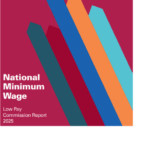
Government Pulse survey shows most nursery costs higher than income
The latest Government Pulse survey of providers from 2024-25 showed that nurseries are still under a lot of financial stress and struggling to expand in order to meet demand for funded places.
The report which was published on 31 October painted a concerning picture for PVI nurseries and in many cases, for nurseries in schools. Workforce continues to be a huge challenge with numbers of vacancies unchanged since the previous year.
NDNA told the press that the Chancellor needed to support nurseries with their vital work to improve children’s outcomes in the Budget later this month.
Some of the key findings include:
- Only 53% of group based providers (PVI and pre-school) expected to be able to meet demand for Sept expansion (schools much higher)
- Funding rates not making additional places worthwhile and not enough staff were the biggest issues for PVI nurseries
- 30% of PVI nurseries likely to see a decrease in revenue as a result of Sept expansion
- 56% of providers planned to increase their fees to cope with cost pressures more than they usually do – average increase was 11%
- 20% have changed the additional services they offer and a further 15% plan to do this
- 26% have reduced spending on food and a further 15% plan to do this
- Waiting lists had grown since September 2024, PVI providers had the largest waiting lists with an average of 14 children
- It takes the average PVI nursery 13 weeks to fill a vacancy
- Experienced based route – not many have started on this yet
- 90% of time was contact time with children in PVI nurseries but less in school-based nurseries (87%)
Purnima Tanuku CBE, Executive Chair of the National Day Nurseries Association said, “These survey findings provide the Government with all the evidence they need to back up what we have been saying for months – nurseries are working hard to deliver the funded places parents need but are under ever increasing financial stress.
“Private and voluntary nurseries who were expanding to help deliver the extra funded places from September planned to create an extra 10 places per setting but 64% said funding was a challenge and 55% reported staffing issues as a barrier to expansion.
“The impact of underfunding and rising delivery costs is clear for all to see, over half of nurseries and more than 75% of school-based providers reported costs higher than their incomes. This position cannot be sustained as more nurseries say they are having to resort to contingency reserves.
“While the increase in early years pupil premium has had a positive impact, too many providers still find barriers to using it effectively. The system needs to be streamlined so that more children who are eligible can benefit from better resources and more skilled staff in their settings.
“The Chancellor must look hard at this data and make the changes that will help to save nurseries in the upcoming Budget, the Government must ensure funding rates keep pace with rising costs. They clearly also need to review the charging guidance which is significantly impacting the majority of providers, reduce the financial burdens of business rates and national insurance and take real steps to address the staffing crisis.”
Read the full report here.
- England
- Department for Education
- early years
- England
- funding
Similar Articles
Government research shows school-based nurseries are not delivering flexible provision to its communities

One in seven childcare professionals paid around minimum wages


